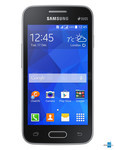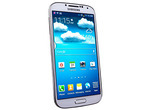Oppo Find X2 Pro review - Still going strong in 2021 - Android
If you weren't paying attention to Oppo before, now's the time to start.
Although a behemoth in Asia, Oppo is still relatively new to Western markets. The past two years have seen a few high-profile launches for the brand, but Oppo still has a way to go in terms of brand recognition and perception in Europe.
So last year, the company simplified its smartphone portfolio, positioning the Find X line as its main high-end brand. Launched a year ago in spring 2020, the Oppo Find X2 Pro isn't an outlandish, borderline experimental device like the original Find X. Instead, Oppo's goal has just been to build a really solid, top-to-bottom Android flagship that ticks every possible box.
And having spent some time getting to know the Find X2 Pro, it's clear to me that this is still one of the best Android phones of the moment.
Find X2 Pro review
- Price and availability
- Hardware and design
- Display
- Battery life
- Software and performance
- Cameras
- Competition
- Should you buy it?
- Changelog, April 2021
At a glance
Oppo Find X2 Pro
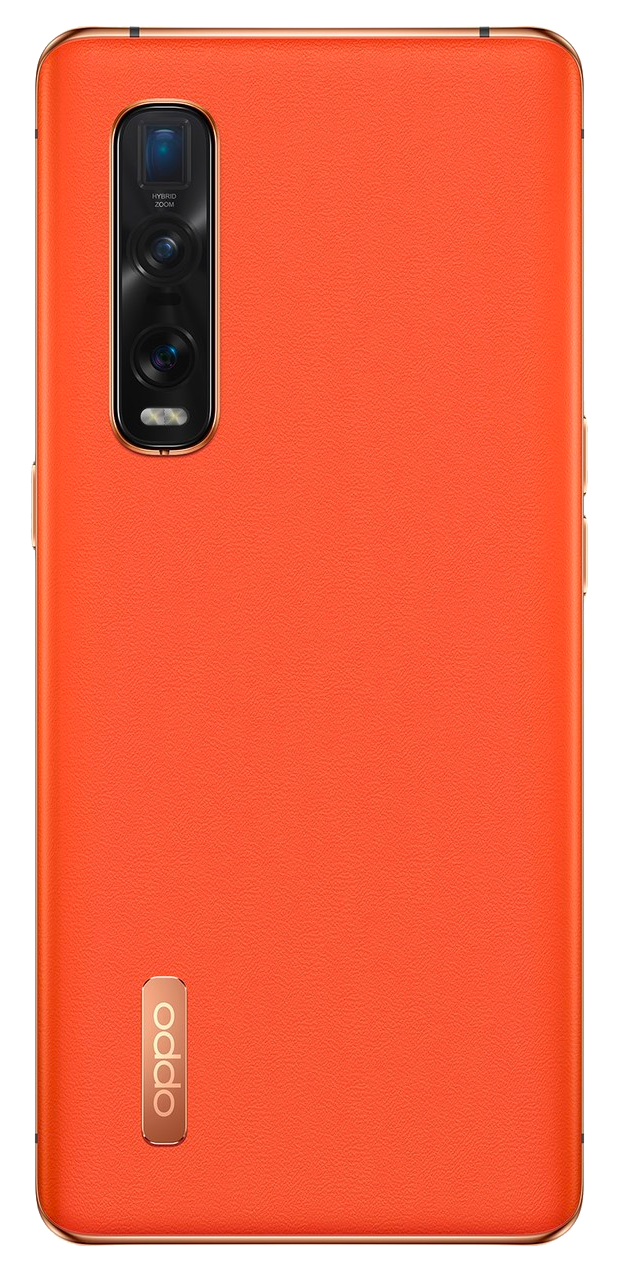
Bottom line: If you weren't paying attention to Oppo before, now's the time to start. The Find X2 Pro delivers just about everything you could want from a flagship smartphone, from display to camera to design. Although not cheap, the Find X2 Pro justifies its high price just as much as any other competitor in this category.
The Good
- Gorgeous 120Hz display
- Pleasing design, especially in "vegan leather"
- Capable camera setup with smooth stabilized video
- ColorOS adds some genuinely useful features
The Bad
- Some software quirks
- No wireless charging
- Ho-hum battery life
- Software support beyond Android 11 may be slow
£799 at Amazon UK
Oppo Find X2 Pro Price and Availability
In addition to being available unlocked on Amazon UK for £799, the Oppo Find X2 Pro can be found on Carphone Warehouse in the UK, with contract deals on Vodafone starting at £39 per month. The amount you'll pay upfront largely depends on your chosen data plan. For £19.99 upfront, you'll get a 100GB plan with 5G connectivity. Meanwhile, an unlimited plan will set you back £51 per month with the same £19.99 upfront fee. As is typical in the UK, you can tweak your monthly fee and upfront charge to suit your own personal preferences.
While on-contract plans for the Find X2 Pro aren't exactly cheap, the phone is considerably more affordable than many 2021 flagships like the Galaxy S21 Ultra when purchased with a service plan.
Oppo Find X2 Pro Hardware and Design
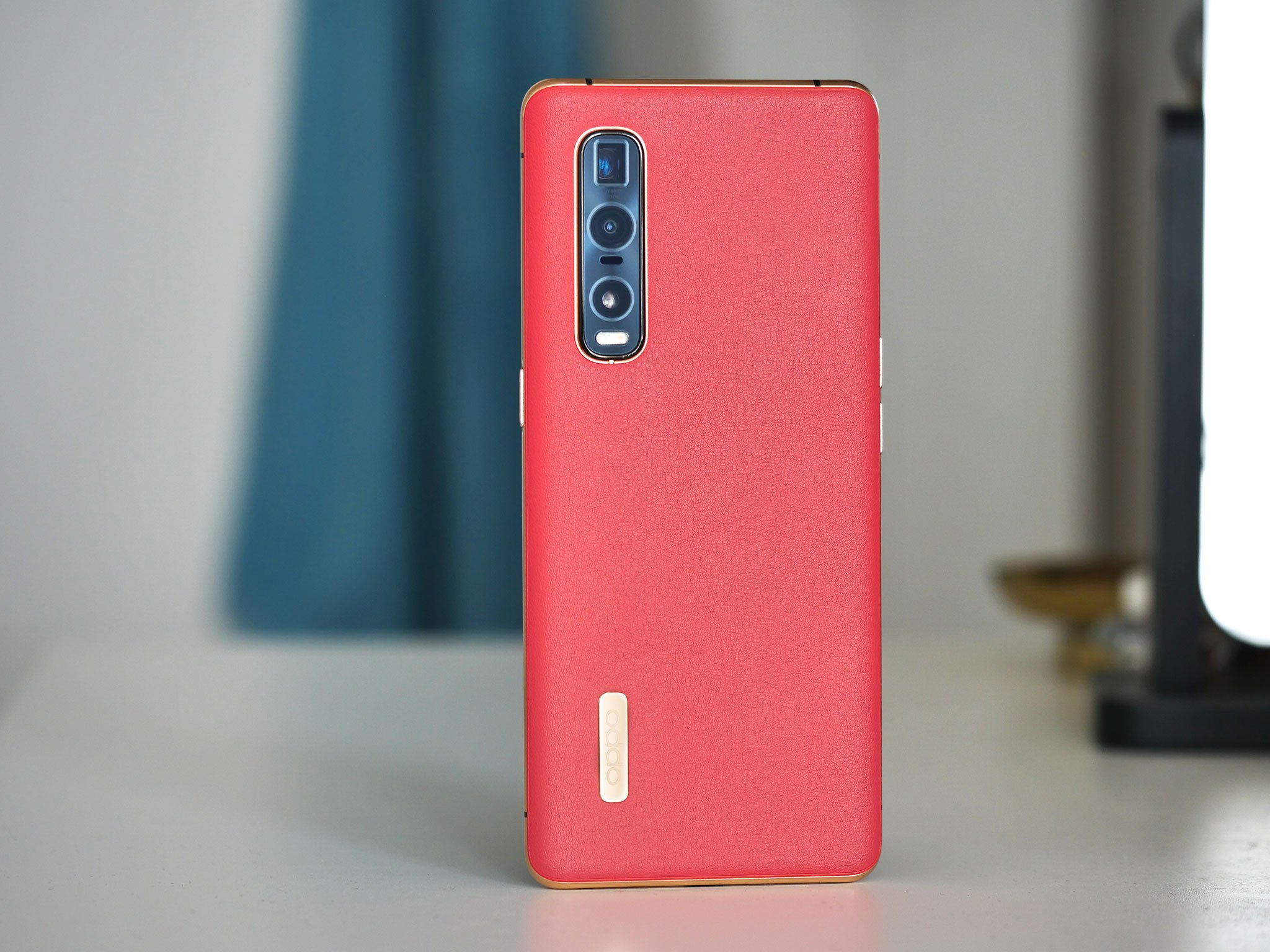
Some fans of the original Find X may be disappointed by the move towards a more traditional smartphone design in the follow-up, but the newly slab-shaped, motor-free Find X2 Pro is incredibly well put together. I've been using the Find X2 Pro in orange "vegan leather," which is effectively fancy textured polycarbonate. Sure, any amount of close inspection reveals that this is indeed plastic and not leather. But having used countless glass and metal slabs over the past year, the new material is a breath of fresh air. The outer frame is still fashioned from glossy, polished metal, with a stylized depressed oval shape top and bottom. On the model I've been using, the golden hue complements the orange back panel.
The unique texture of the Find X2 Pro also helps with grip — useful in such a large phone — making it among the least fingerprinty devices I've used of late.
Should you want a more conventional look for your phone, there's also a ceramic-backed Find X2 Pro, which I used briefly at the device's London launch event, and probably feels more like the phone in your pocket right now.
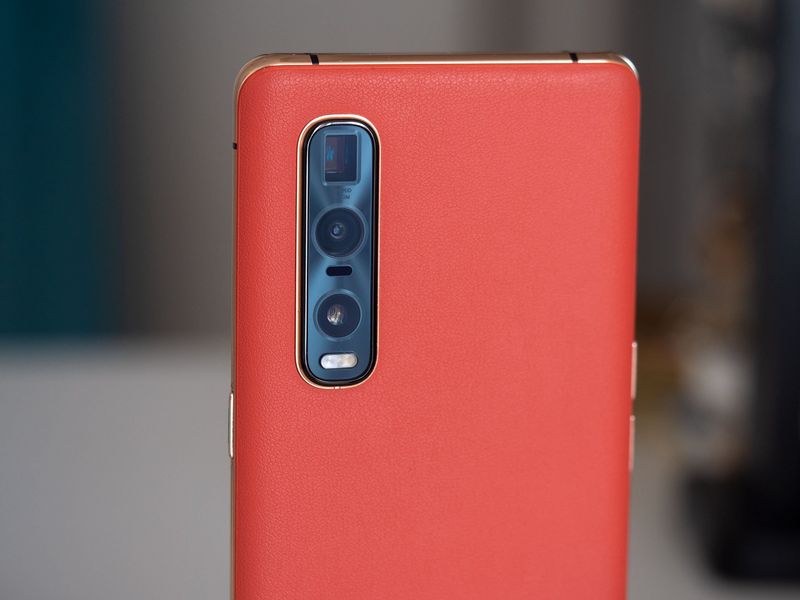
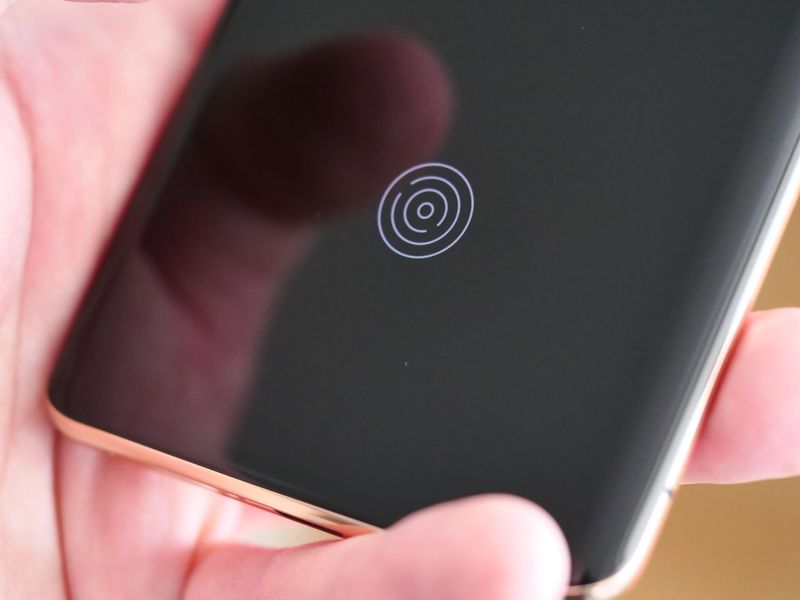
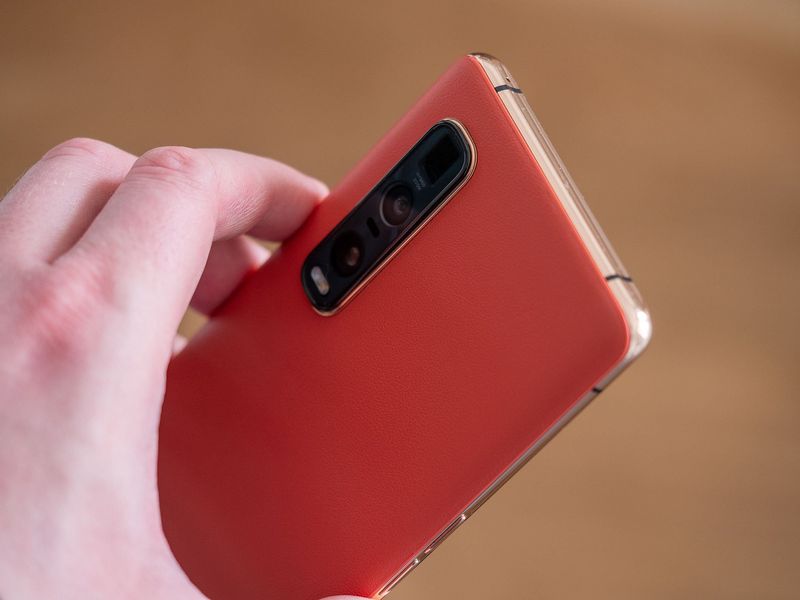
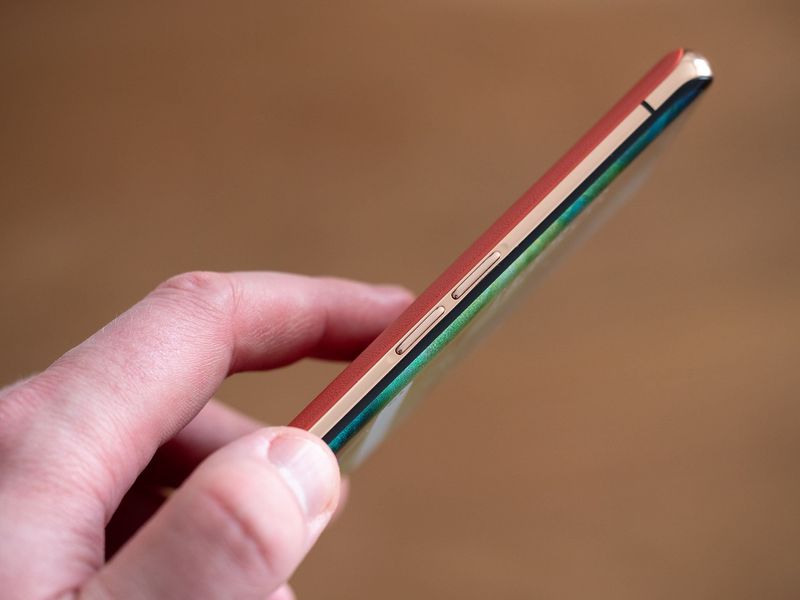
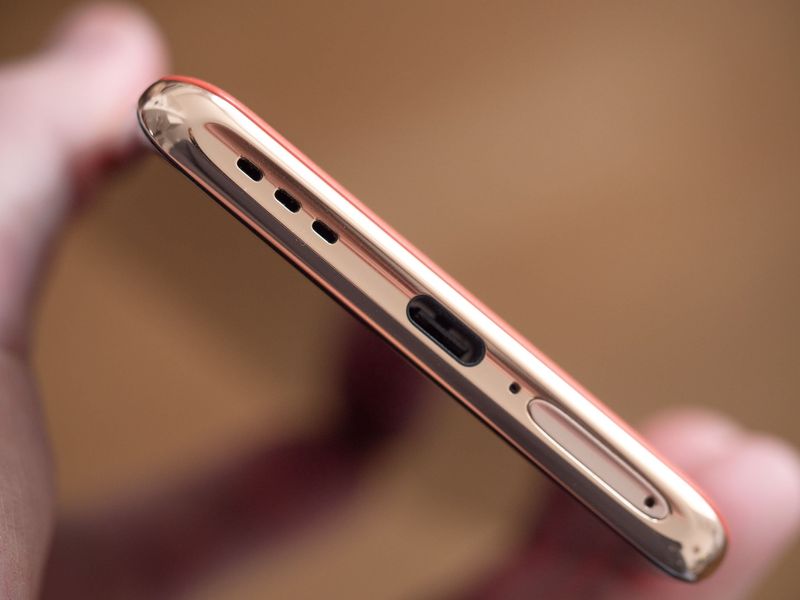
The Find X2 in '"vegan leather" is an exceptionally pretty phone.
As much as the vegan leather coating dominates the rear of the Find X2 Pro, it's also home to a chunky vertical camera protrusion, which houses a triple-lens array, and a metal Oppo badge down below. I had been concerned that this would quickly pick up knocks and scrapes, but in my first few weeks of use, it's held up pretty well — just one minor scratch towards the bottom of the badge. (Though granted, a decent chunk of that time has been spent indoors owing to the current global health situation.)
Nevertheless, this is an exceptionally pretty phone and one that manages to stand out thanks to its choice of materials and the impressive execution of its design. The hand feel is comfortable, and I found grip and reachability to be less challenging than other similarly sized phones. Haptic feedback, too, is top-notch, with satisfyingly firm taps.
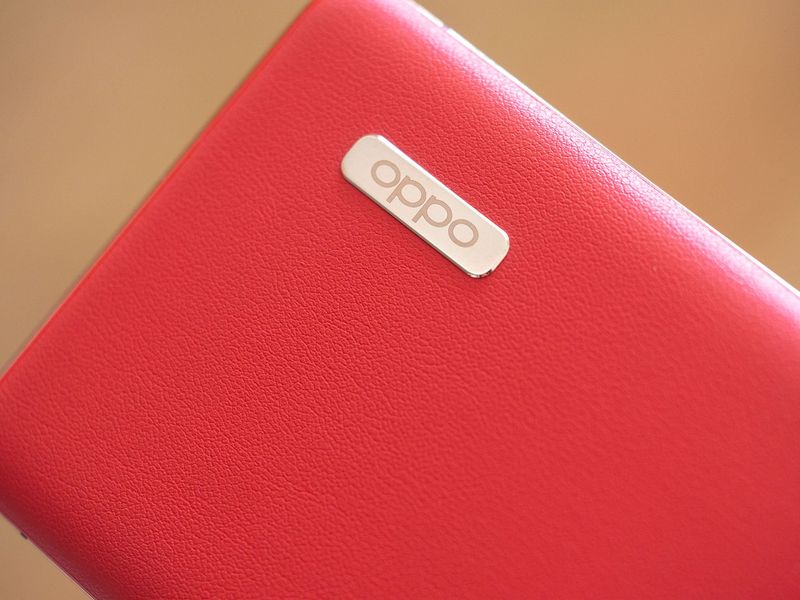
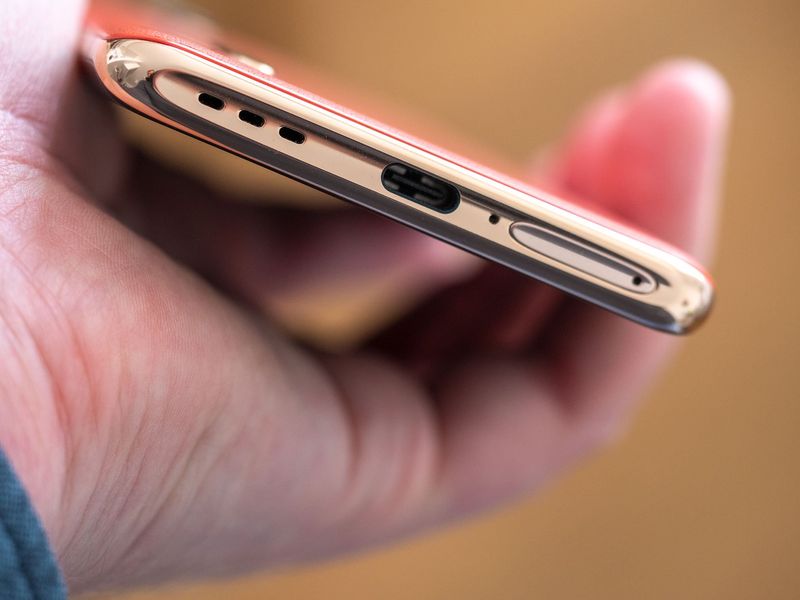
On the inside, the Find X2 Pro is equally impressive. It's powered by Qualcomm's Snapdragon 865 processor with integrated 5G, along with 12GB of RAM and 256 or 512GB of storage (I've been using the 512GB version).
Oppo's also shipping a standard, non-Pro Find X2, which downgrades the water-resistance spec, the memory, and some of the cameras, to keep the price down.
Oppo Find X2 series hardware specifications
| Category | Find X2 | Find X2 Pro |
|---|---|---|
| Operating system | Android 10 ColorOS 7.1 | Android 11 ColorOS 11 |
| Display | 6.7-inch 120Hz Ultra Vision AMOLED 3168x1440 Gorilla Glass 6 | 6.7-inch 120Hz Ultra Vision AMOLED 3168x1440 Gorilla Glass 6 |
| Chipset | Snapdragon 865 1 x 2.84GHz Kryo 585 3 x 2.42GHz Kryo 585 4 x 1.80GHz Kryo 585 Adreno 650 7nm | Snapdragon 865 1 x 2.84GHz Kryo 585 3 x 2.42GHz Kryo 585 4 x 1.80GHz Kryo 585 Adreno 650 7nm |
| RAM | 12GB LPDDR5 | 12GB LPDDR5 |
| Storage | 256GB UFS3.0 | 512GB UFS3.0 |
| MicroSD slot | No | No |
| Rear camera 1 | 48MP (IMX586), f/1.7, 1/2-inch OIS, 4K at 60fps | 48MP (IMX689), f/1.7, 1/1.4-inch All-Pixel Omnidirectional PDAF Dual OIS, 4K at 60fps |
| Rear camera 2 | 12MP (IMX708), f/2.2, 1/2.4-inch wide-angle 120-degree FoV | 48MP (IMX586), f/1.7, 1/2-inch wide-angle 120-degree FoV |
| Rear camera 3 | 13MP (IMX616), f/2.4 5x hybrid zoom, 20x digital zoom | 13MP, f/3.0 10x hybrid zoom, 60x digital zoom |
| Front camera | 32MP (IMX616), f/2.4 1080p video | 32MP (IMX616), f/2.4 1080p video |
| Connectivity | Wi-Fi 6 2x2 MIMO Bluetooth 5.1, NFC A-GPS, Beidou | Wi-Fi 6 2x2 MIMO Bluetooth 5.1, NFC A-GPS, Beidou |
| 5G networks | NSA: n1/3/5/7/28A/41/77/78 SA: 41/78 | NSA: n1/3/5/7/28A/40/41/77/78/79 SA: 41/78/79 |
| Audio | USB-C Stereo speakers | USB-C Stereo speakers |
| Battery | 4200mAh (2*2100mAh) Non-removable | 4260mAh (2*2130mAh) Non-removable |
| Charging | USB-C 65W SuperVOOC 2.0 10V/6.5A | USB-C 65W SuperVOOC 2.0 10V/6.5A |
| Security | In-screen fingerprint | In-screen fingerprint |
| Wireless Charging | No | No |
| Water resistance | IP68 | IP68 |
| Colors | Black Ceramic, Ocean | Black Ceramic, Orange Vegan Leather |
Oppo Find X2 Pro Display
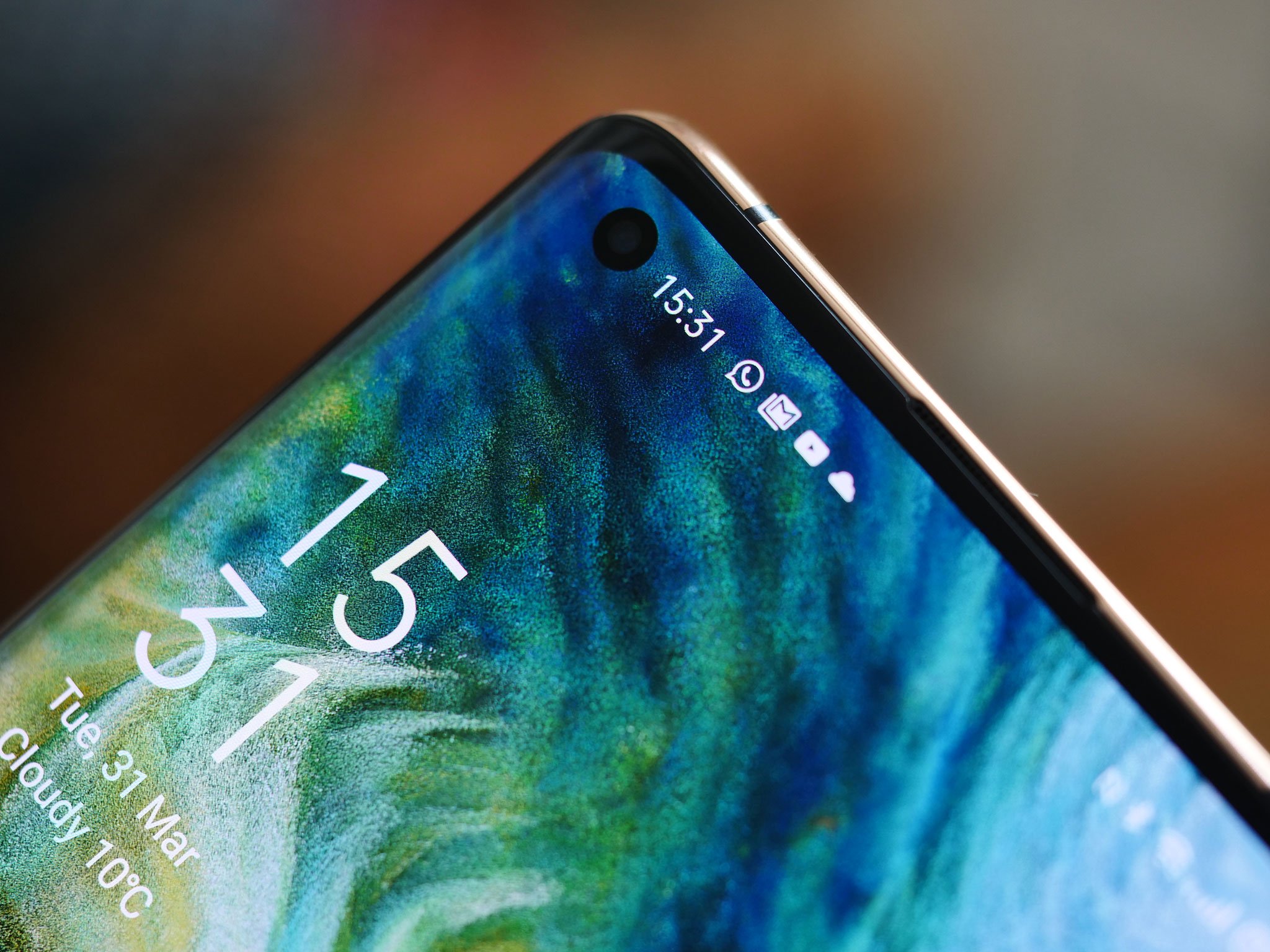
This phone's star attraction is, without a doubt, its display. It's a 6.7-inch Quad HD+ OLED panel packed with proprietary Oppo technology and a glorious 120Hz refresh rate. As you'll know if you've read our Samsung Galaxy S20 series reviews, a high refresh rate like this will instantly ruin any other phone screen for you. The extra fluidity of a high refresh rate and the accompanying 240Hz touch sampling rate is a revelation for smartphone performance.
120Hz smoothness will ruin just about every other phone screen for you.
Bezels are minimal, with only the slightest hint of a "chin" area down below and a subtle curve to the glass surface on the horizontal. The only blemish is the hole-punch selfie camera in the top left corner. This may be a turn-off for some, but it is sure to be one of the major smartphone trends of the year, and I've long since made my peace with the idea that these things are going to be around for the foreseeable future. Even in video playback and photo viewing, where the whole screen is in play, I haven't been particularly bothered by it.
The display is also extensively configurable, from basic tweaks like white balance and color vibrance to the "O1 Ultra Vision Engine," which can upscale non-HDR and lower-frame-rate video content to up to 120Hz with HDR.
The 120 nits of peak local brightness (or 800 nits total across the panel) also makes for easy daylight visibility, while the lowest brightness levels combined with Dark Mode can help with comfortable late-night viewing.
Anecdotally, I've also found the battery hit of using 120Hz mode (or more accurately, Oppo's Auto Select mode, which dynamically switches from 60-120Hz), to be fairly minimal. The extra hertz are definitely not free, and if battery life is your top priority, then you'll want to stick to the lower refresh rate. But the dilemma of battery life versus display smoothness really hasn't been the source of much anxiety for me.
Oppo Find X2 Pro Battery Life
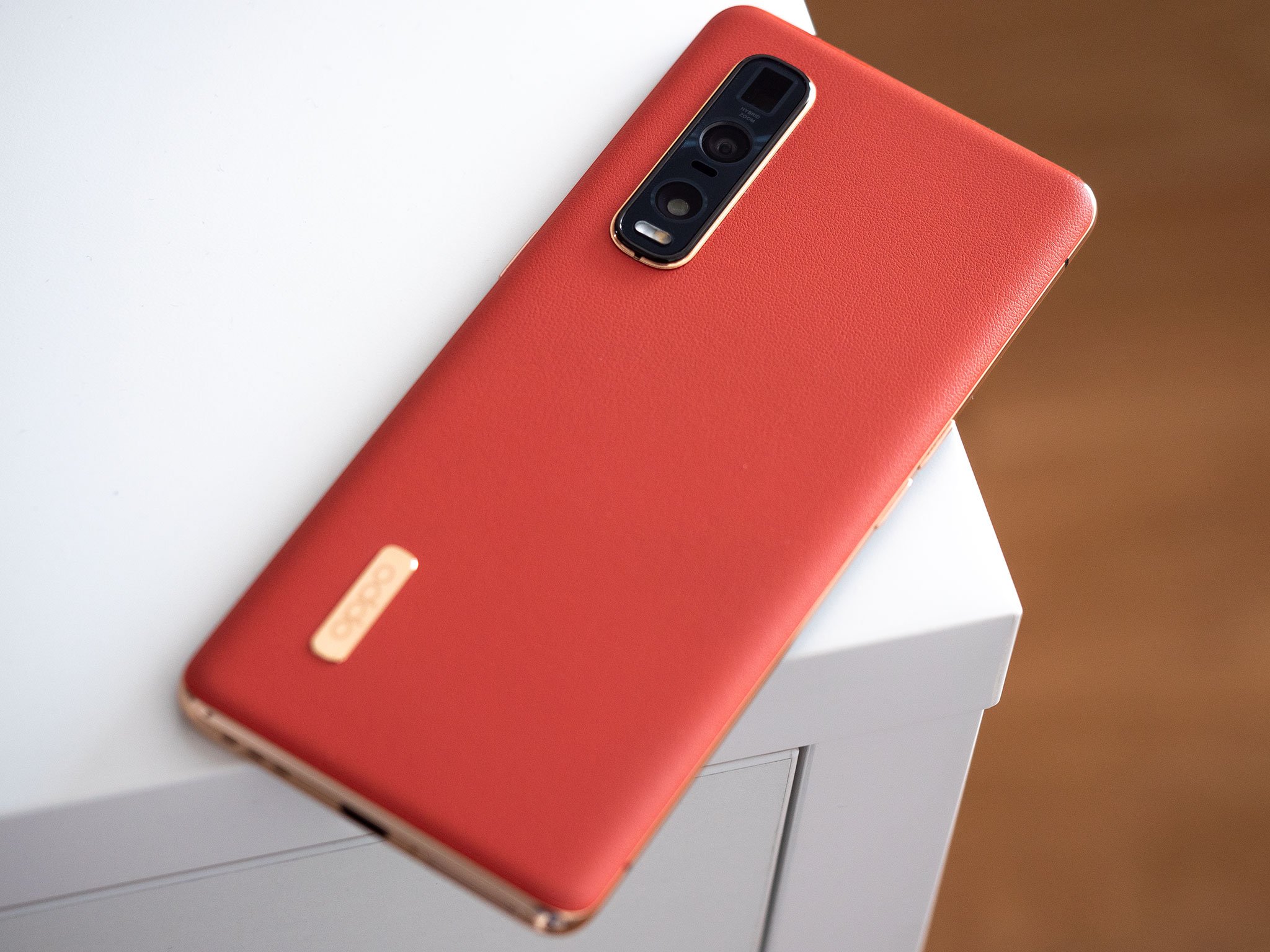
The Oppo Find X2 Pro packs an ample 4,260mAh battery inside. But it's also a 5G phone with a fast refresh rate and a ton of other whizbang features. As such, I've found battery life to be reliable for around a full day's use, but not one of the best Android devices I've used in terms of longevity. With my usage, I'm getting a comfortable four-ish hours of screen-on time across a full day of use. That's fine for me most of the time, but for heavy users, this isn't a two-day phone.
Run-of-the-mill longevity, but lightspeed charging.
That's not such a big deal, though, considering the speed of Oppo's SuperVOOC 2.0 65W wired charging. You'll need to use the special charging brick and cable bundled in the box, but doing so can get you out of the danger zone in just a few minutes. I've stopped worrying about charging overnight because I know that however low the charge is in the morning, I can be back in action in the time it takes to make a cup of coffee.
For a full charge from dead, Oppo quotes 38 minutes, which broadly matches with my experience.
Finally, the one trade-off in this department: there's no wireless charging on offer here, which is somewhat disappointing when the likes of Huawei and OnePlus are pushing Qi charging to even quicker charging speeds. But if you're happy to stick to wired, you'll get the fastest refills in any smartphone we've so far tested.
Oppo Find X2 Pro Software and Performance
Before using the Find X2 Pro, it'd been a good few years since I'd used an Oppo phone with the company's Android-based ColorOS. To put it mildly, I did not have fond memories of the software: It was overbearing, ugly, and rife with app-breaking bugs.
Fortunately, none of the above applies to the latest ColorOS — version 11, based on Android 11. To my surprise, I've actually enjoyed using Oppo's software during my time with the phone. Just like Samsung and LG, Oppo has its own distinctive visual style, with green hues, clean whites, and stylized wireframe icons. It's all very easy on the eyes. ColorOS's core apps and UI are pleasantly animated, and thanks to the speedy processor and display, the Find X2 Pro absolutely flies.
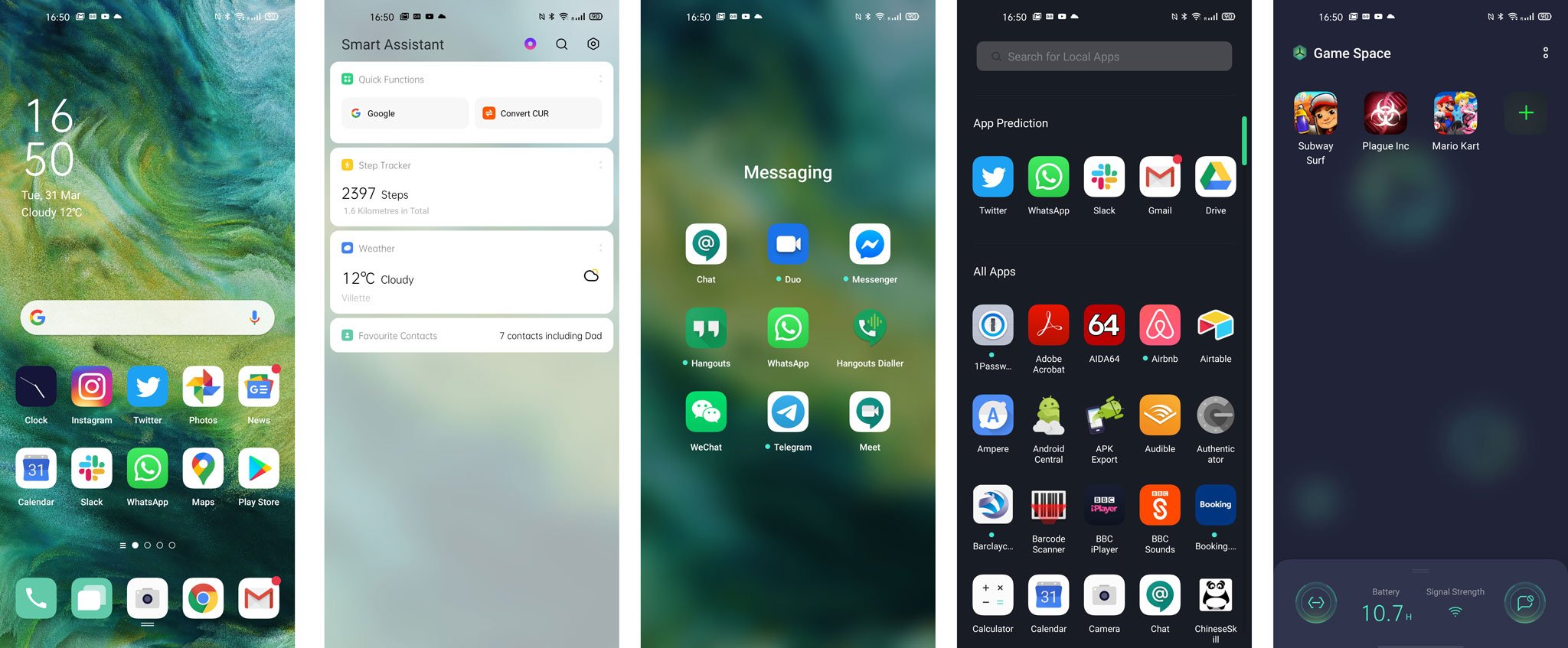
ColorOS is actually good now.
That exceptional performance extends to the phone's biometrics. I've found the new, larger optical fingerprint scanner more reliable and slightly faster than the previous generation, especially when using fingers other than my right thumb. The same goes for the face unlock feature, which admittedly isn't as secure as 3D scanning systems used in the iPhone, Google Pixel 4, and others.
I've also found some genuinely useful features in ColorOS, particularly around multitasking. A three-fingered swipe easily splits the screen into multi-window mode — far easier than the multiple taps required to do this in vanilla Android. And as of ColorOS 11, there's a fully-fledged windowed mode that's supported in most apps, letting you collapse them down into a floating window or minimize them into a chat head-style bubble.
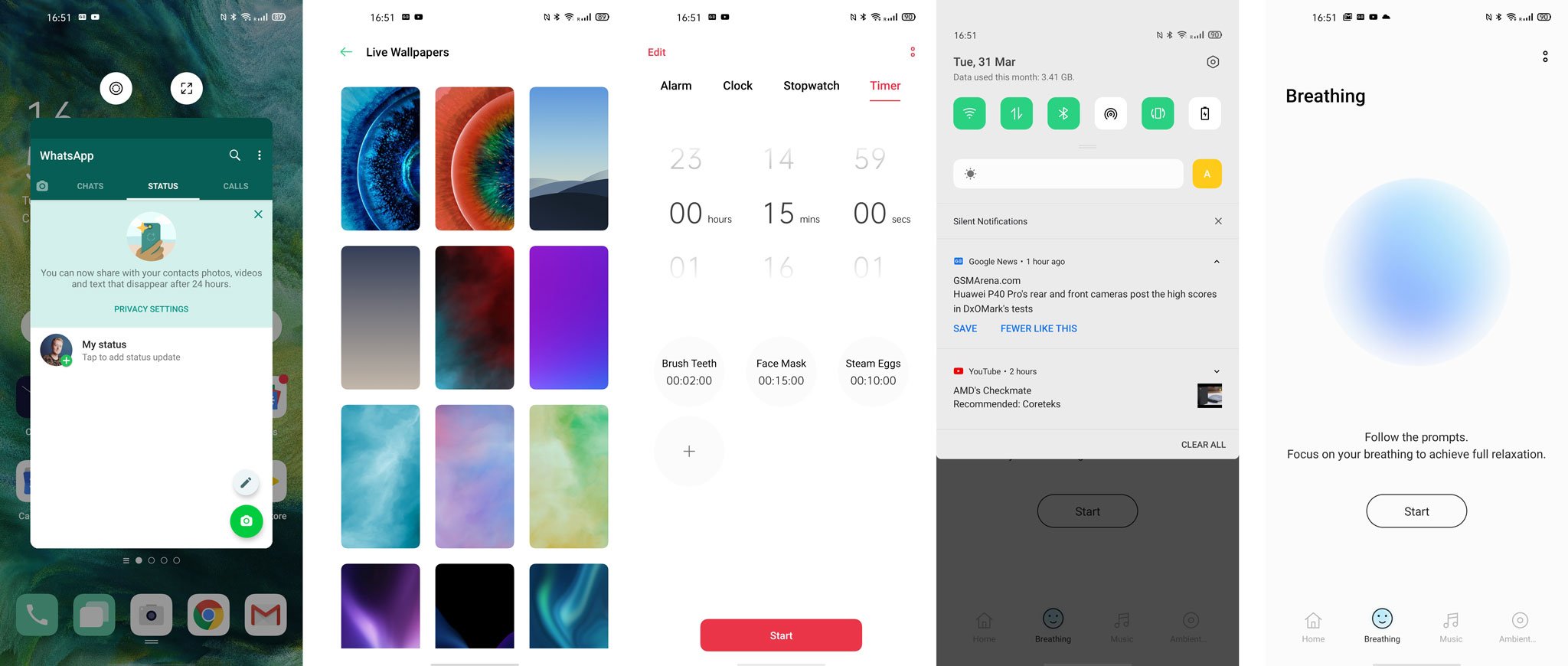
Meanwhile, the preloaded Oppo Relax app comes with soothing ambient sounds and visuals for guided breathing, as well as ambient music and white noise tracks. It sounds like a small thing, but in an increasingly nightmarish year, it's something I think many buyers will be thankful for.
Unlike more recent Oppo phones, the Find X2 Pro's home screen launcher lacks Google Feed integration, instead opting for the company's own Smart Assistant panel, a sort of iOS-style widget shelf that's quite underdeveloped and not a whole lot of use.
As with any highly opinionated smartphone software, there are some bugbears to note. The most irritating ColorOS feature I've encountered is the default behavior of the status bar, which doesn't show icons for all notifications. Instead, each app has to be manually toggled on. This, in turn, results in a confusing disconnect when only a handful of apps show an icon in the status bar, yet notifications from other apps may be waiting in the notification shade.
While Oppo was relatively quick to update the Find X2 Pro to Android 11, the company doesn't have a great track record for longer-term support, so further updates to Android 12 may take longer than rival brands' phones.
Oppo Find X2 Pro Cameras
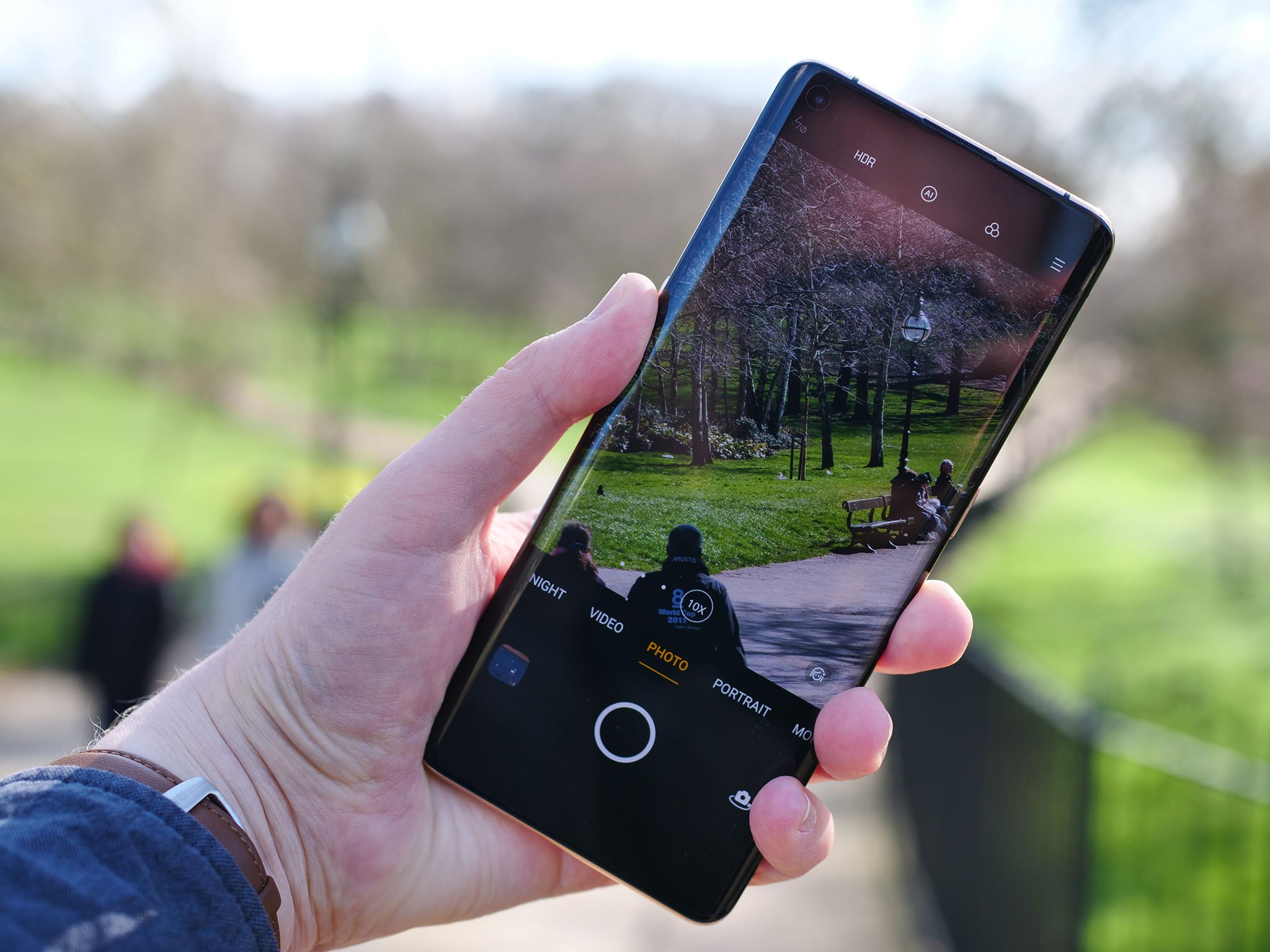
Oppo cut its teeth on periscope cameras with 2019's Reno devices, and the trend of super-long telephotography continues in the Find X2 Pro. Alongside a redesigned (and much larger) main sensor and a capable ultrawide option, the phone features a second-gen 13-megapixel 5X telephoto zoom that's good at up to 10X in hybrid zoom mode.
Oppo Find X2 Pro camera specs
| Camera | Details |
|---|---|
| Rear camera 1 | 48MP (IMX689), f/1.7, 1/1.4-inch All-Pixel Omnidirectional PDAF Dual OIS, 4K at 60fps |
| Rear camera 2 | 48MP (IMX586), f/1.7, 1/2-inch wide-angle 120-degree FoV |
| Rear camera 3 | 13MP, f/3.0 10x hybrid zoom, 60x digital zoom |
| Front camera | 32MP (IMX616), f/2.4 1080p video |
Sony discontinues its last DSLRs
05/05/2021 11:10 AM
'Farpoint' studio Impulse Gear will release a VR hero shooter this summer
05/05/2021 06:43 PM
WhatsApp money transfer service, payments now ready in Brazil
05/05/2021 11:00 AM
Galaxy S20 FE 4G With Snapdragon 865 SoC Launched
05/05/2021 07:17 PM
You can finally make payments via WhatsApp in Brazil
05/05/2021 09:39 AM
HTC To Unveil Vive Focus 3 Business Edition + Pro 2 Next Week
05/05/2021 02:29 PM
Samsung's next big tablets get a fresh batch of leaked renders and specs
05/05/2021 08:00 PM
- Comics
- HEALTH
- Libraries & Demo
- Sports Games
- Racing
- Cards & Casino
- Media & Video
- Photography
- Transportation
- Arcade & Action
- Brain & Puzzle
- Social
- Communication
- Casual
- Personalization
- Tools
- Medical
- Weather
- Shopping
- Health & Fitness
- Productivity
- Books & Reference
- Finance
- Entertainment
- Business
- Sports
- Music & Audio
- News & Magazines
- Education
- Lifestyle
- Travel & Local
2014 © US apps and news



















